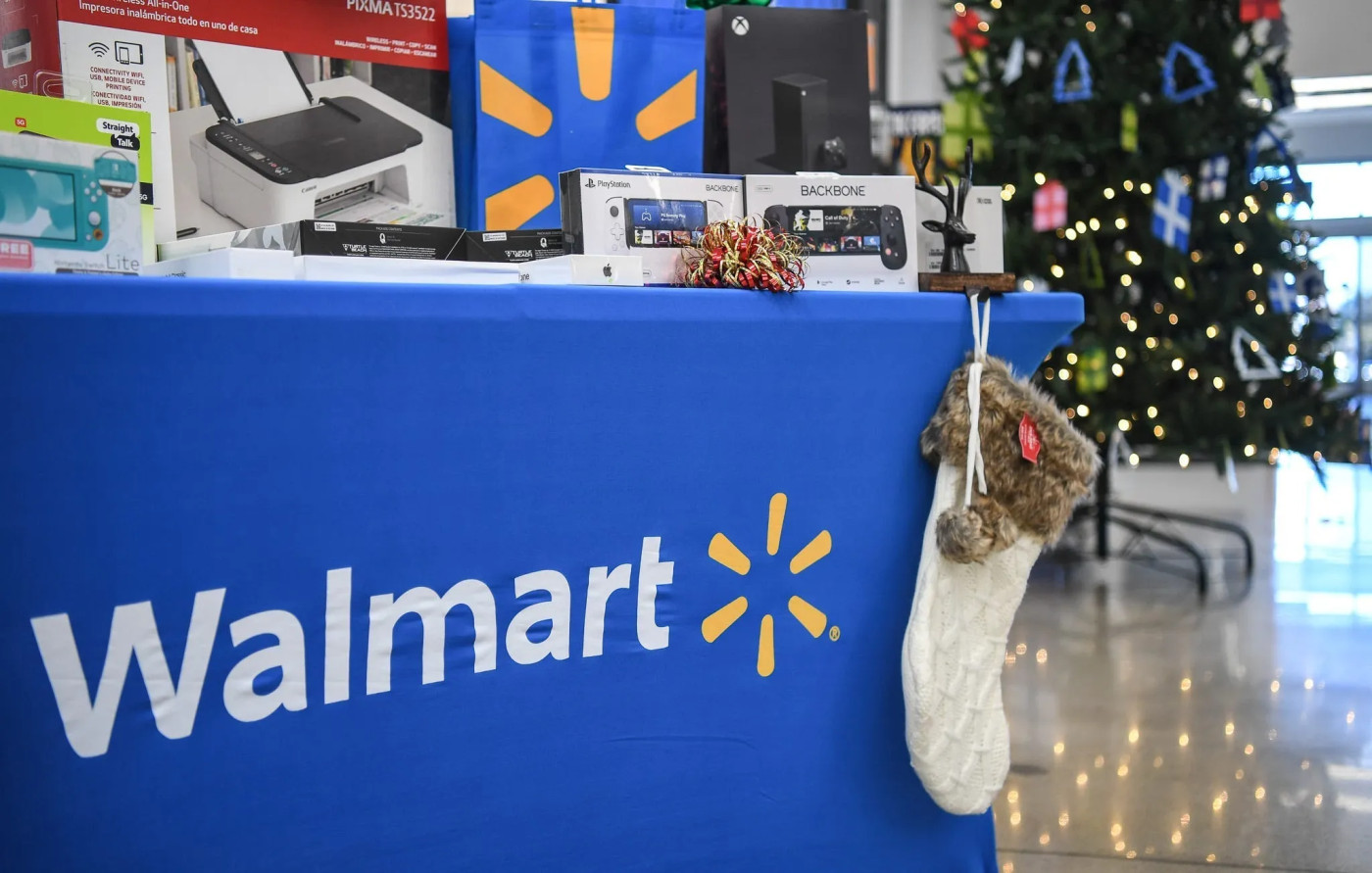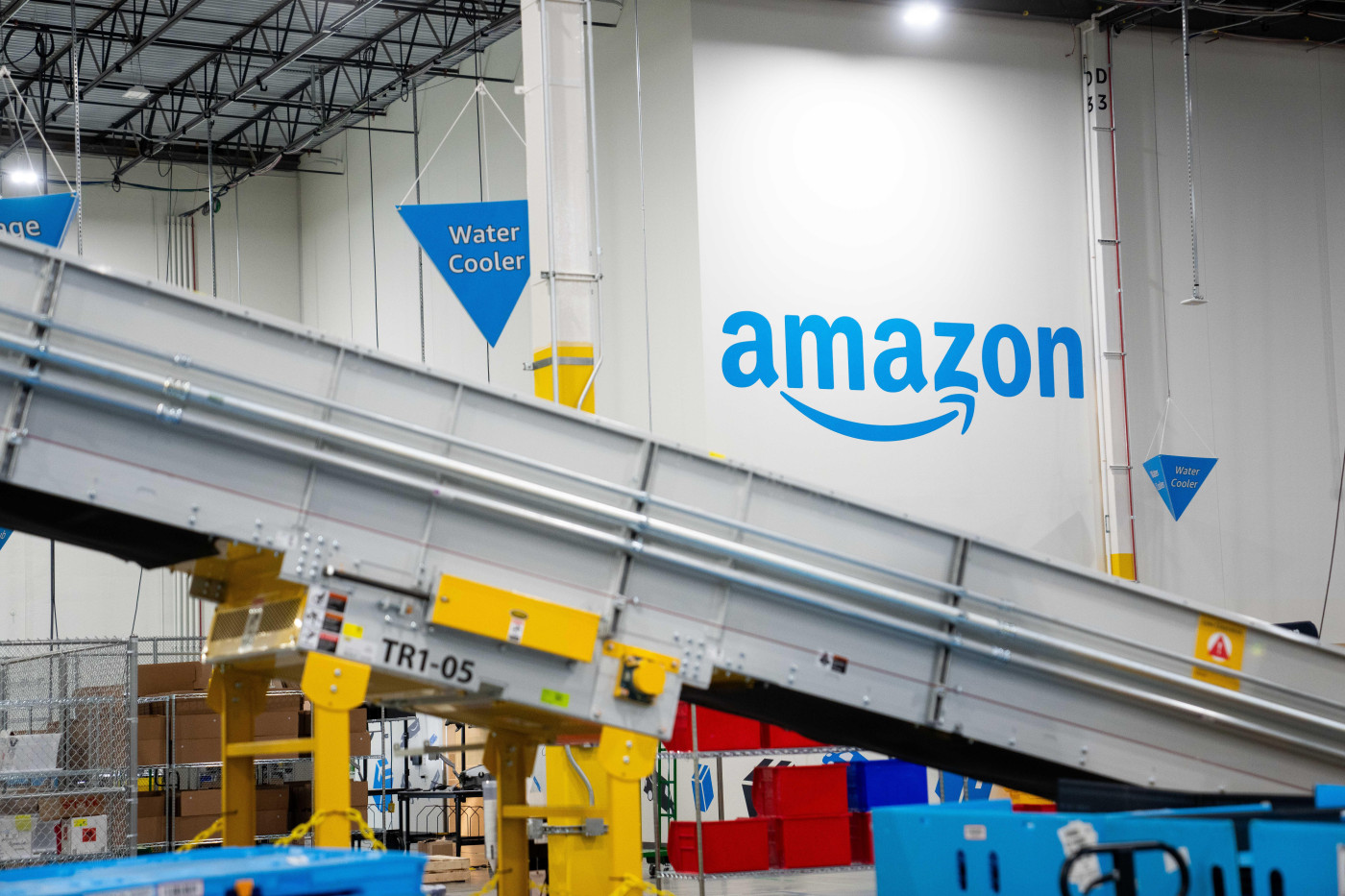
Walmart employees testing body cameras at some stores for 'security measures'
Walmart has become the most recent retailer known to have some store employees wear body cameras.
The nation's largest retailer has some employees taking part in a body camera pilot program. “While we don’t talk about the specifics of our security measures, we are always looking at new and innovative technology used across the retail industry," Walmart said in a statement to USA TODAY. "This is a pilot we are testing in one market, and we will evaluate the results before making any longer-term decisions."
While some retailers are prioritizing theft prevention with the deployment of body cameras, a person close to the project says Walmart is focusing the test on employee safety at a handful of stores involved in the pilot.
A shopper in Denton, Texas shared a photo of a Walmart associate wearing a yellow-and-black body camera earlier this month with CNBC, the news outlet reported.
A photo of body cameras in charging bays reportedly from a Walmart store was posted on Reddit a month ago. The photo includes a poster detailing directions of how to use the camera to record an event if an interaction with a customer is escalating.
Holiday deals: Shop this season’s top products and sales curated by our editors.
Holiday shipping deadlines:USPS, FedEx and UPS holiday gift shipping schedules for arrival by Dec. 24
Other retailers piloting body camera use in US stores
Walmart would not be the first retailer to deploy body cameras in the U.S. Earlier this year, TJX, the parent company of T.J. Maxx, HomeGoods and Marshalls, began having some employees at its stores use body cameras.
"It's almost like a de-escalation where people are less likely to do something when they're being videotaped," TJX chief financial officer John Klinger said in May during the company's first quarter earnings call.
"Body cameras are currently used by certain Loss Prevention Associates, who have gone through thorough training on how to use the cameras effectively in their roles," TJX said in a statement to USA TODAY. "Video footage is only shared upon request by law enforcement or in response to a subpoena."
Body cameras are one way TJX creates "a safe store environment," the company said. "We hope that these body cameras will help us de-escalate incidents, deter crime, and demonstrate to our Associates and customers that we take safety in our stores seriously.”
Body cameras could eventually become a common fixture in stores – and are trending that way in the U.K.
Shoplifting rate increase could lead to more body cameras in stores
More than one-third (35%) of U.S. retailers in the 2023 National Retail Security Survey, conducted by the National Retail Federation, said they were researching body-worn cameras for employees or loss prevention personnel. About 11% were already piloting or testing the solution, the NRF found.
Retailers are considering the use of body cameras to protect employees and prevent theft, David Johnston, the National Retail Federation's vice president of asset protection and retail operations, said in a statement to USA TODAY. "Retailers are making every effort to ensure the safety and well-being of their customers, associates and communities," he said. "The use of body cameras is still a newer technology being used in retail and individual retailers are finding how this technology best works within their environments."
Theft has become a growing concern for retailers. From 2019 to 2023, shoplifting incidents rose 93% – and the dollar loss rose 90%, according to a report out today from the NRF, the Loss Prevention Research Council and Sensormatic Solutions.

Some hope the body cameras serve as a deterrent. That's because shoplifters have become more violent and aggressive, according to 91% of the senior loss prevention and senior executives surveyed. That issue highlights "why retailers are continuously looking at measures to reduce the threat of violence," Johnston said.
So one of the things that we've added, we started to do last year, late towards the year, were body cameras on our LP associates. And when somebody comes in, it's sort of -- it's almost like a de-escalation where people are less likely to do something when they're being videotaped. So we definitely feel that that's playing a role. Also, during the end of the year, when we look at our shrink results, we're able to then set our plans for the following year and seeing what worked, what didn't and so it's about continuing to lean into the strategies that worked last year. But again, we count our inventory at the end of the year and that's when we would be in a position to give guidance.
Follow Mike Snider on X and Threads: @mikesnider & mikegsnider.
What's everyone talking about? Sign up for our trending newsletter to get the latest news of the day

